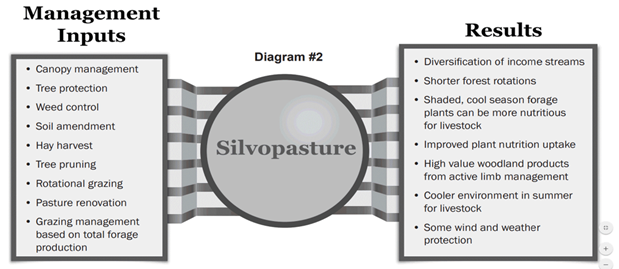
Training opportunities to achieve healthy soils and carbon sequestration have been implemented and more opportunities are planned as this section discusses.
The Carbon Cycle Institute (CCI) is a non-profit organization that is continually evolving to meet the growing demand among producers, Conservation Districts, and other key partners for Carbon Farm Plan development. CCI has worked with the Colorado State University COMET team to develop an on-line, multi-module carbon farm planning education platform designed to be paired with guided training with the CCI Staff. The curriculum was first launched in 2020 to scale carbon farm planning education and training opportunities for students, farmers and ranchers, conservationists, and natural resource management agencies.
Its “Café Hours” recording section provides various webinars on carbon farming topics such as biochar, composting, silvopasture, carbon on dairy farms, and many other topics.
OrCAN – TRAIN THE TRAINER SERIES
The Oregon Climate and Agriculture Network has produced a series of interactive trainings for Oregon agricultural professionals to advance their knowledge of farm-based solutions for climate resilience. These solutions reduce risks from extreme weather events, store more carbon in the soil, and work for a farmer’s bottom-line.
The primary audience for these workshops is agricultural technical service providers, farm advisors, and researchers throughout Oregon. For example: OSU Extension, Soil and Water Conservation Districts, Oregon Natural Resource Conservation Service, Watershed Councils, Land Trusts, researchers, non-profits, and agricultural education providers. For more information go to www.oregonclimateag.org or contact Carly Boyer, Program Manager, at OrCAN: carly@oregonclimateag.org.
Take this engagement survey to stay updated when registration becomes available.
BIOCHAR LEARNING CENTER – US Biochar Institute Visit the Biochar Learning Center Database search case studies, videos, articles and more The site shares a number of videos and presentations, ranging from “What is Biochar?” to application on the ground. Sign up for the USBI Newsletter to read farmer profiles when they are published. Pacific Northwest Biochar Atlas – The Pacific Northwest Biochar is a resource for biochar users and producers.
Soil is a vital living ecosystem.. Watch the video below to discover how different management practices can impact soil. Presenter: Heather Y. Medina Sauceda, Natural Resources Conservation Service, Basin Team Leader, USDA Watch on YouTube: https://extension.oregonstate.edu/video/soil-health |
Silvopasture is the deliberate integration of trees and grazing livestock operations on the same land. These systems are intensively managed for both forest products and forage, providing both short- and long-term income sources.

Well-managed silvopastures employ agronomic principals, typically including introduced or native pasture grasses, fertilization and nitrogen-fixing legumes, and rotational grazing systems that employ short grazing periods that maximize vegetative plant growth and harvest. The annual grazing income helps cash flow the tree operation while the tree crop matures and creates easy access if and when the trees or tree products are harvested. While these systems can require a number of management activities, the benefits can make it worthwhile.
Silvopasture systems introduce forage into a woodland or tree plantation or introduce trees into a pasture. Rotational grazing is a key management activity when using silvopasture and can also increase wildlife diversity.
